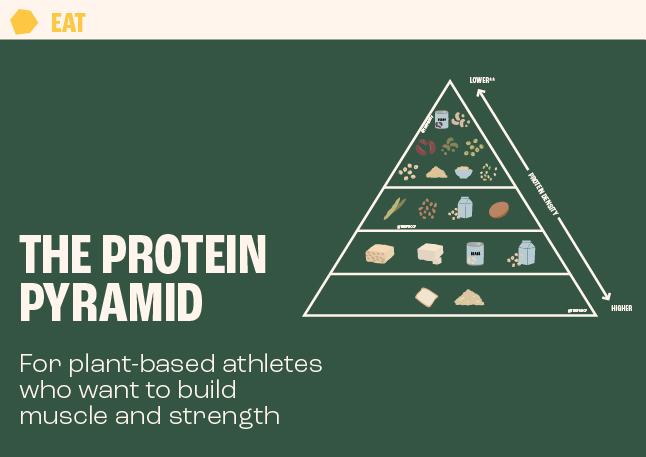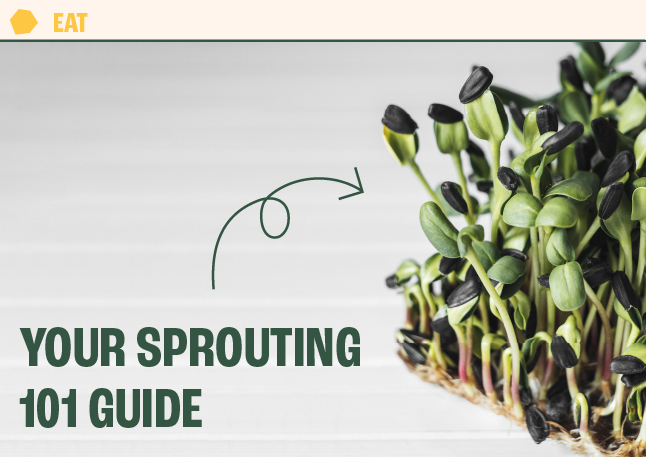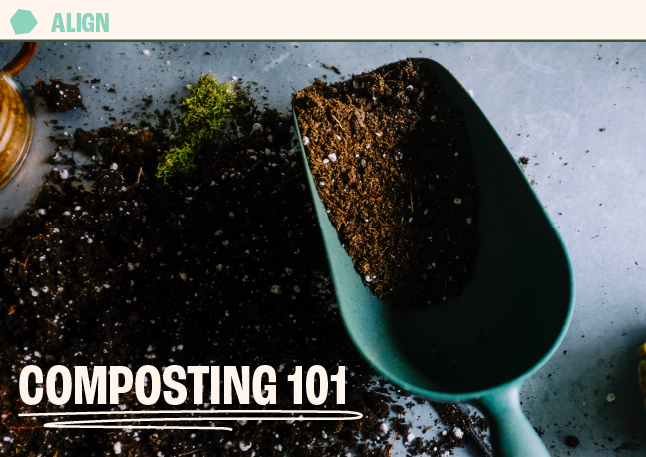In this blog I am going to summarise the most important things for you to consider with regards to your nutrition when it comes to building lean muscle and improving strength. Even if you’re not eating a plant-exclusive diet, with the tremendous health benefits on offer from a more plant-based approach, I think you will find this information both interesting and helpful in nudging your diet towards one that not only helps you with your performance but also your overall health and longevity.
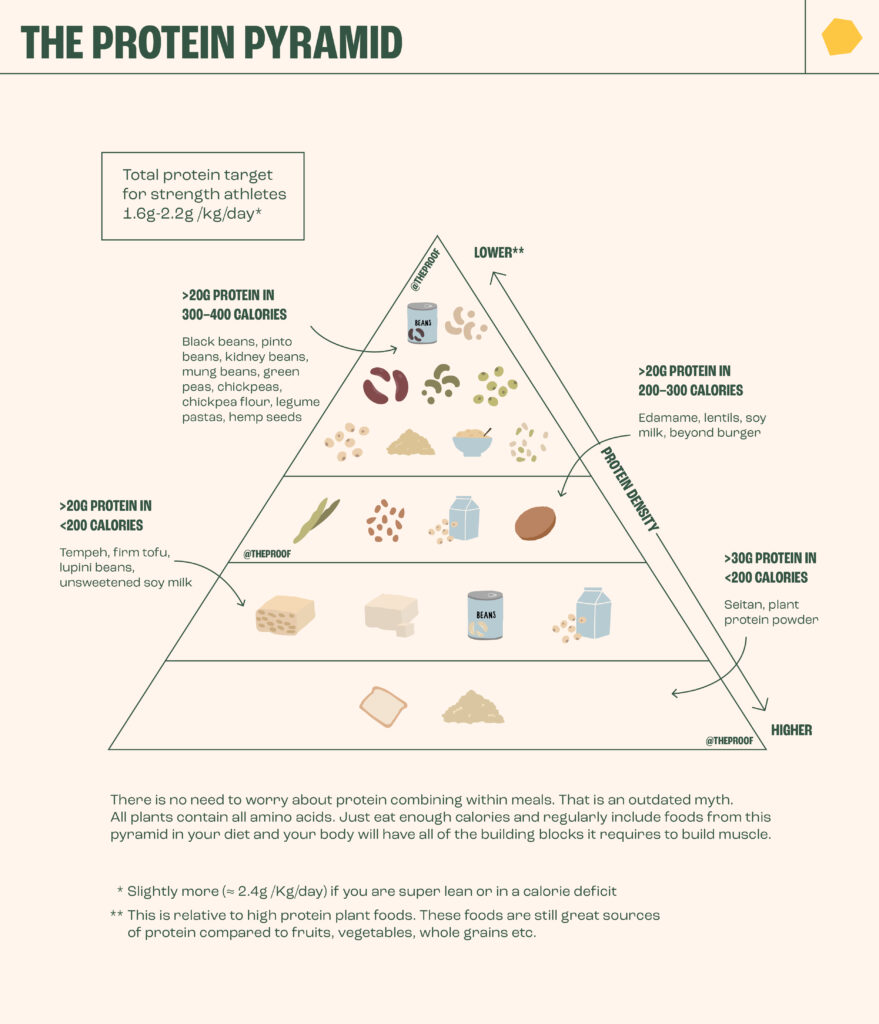
- Set your daily protein target to 1.6-2.2 g per Kg of body weight. This is the range at which increasing protein any more does not improve muscle growth and strength. For plant-based athletes I recommend targeting at least 1.8 g per Kg of body weight to factor in that the protein in plants is slightly less bioavailable (the difference between animal and plant protein absorption seems to only be a few percent). For example, if you weigh 90Kg then your daily protein goal would be 1.8 x 90 = 162 g. In the below Protein Pyramid I have sorted the best plant-based sources of protein by protein density. These are the foods you will want to be emphasising in your diet to achieve your protein target. Of course, like with anything, if you can try to include a diverse range of these foods in your diet rather than just one or two. Each of them offers not only protein, but a unique blend of prebiotic fibre, vitamins, minerals and phytochemicals.
- There is evidence to show that consuming at least 2-3 g of leucine (an essential amino acid) per meal is also important to maximise MPS. This can be achieved through whole plant foods (e.g soy foods and seitan are very rich in leucine) but is certainly made easier with a plant protein powder. I recommend finding one that specifically says it contains at least 2 g of leucine per serve.
- In addition to consuming enough protein, set your calories to suit your goal. If you are wanting to build muscle it helps to eat slightly more calories than your body is utilising. A slight calorie surplus of ≈ 300-500 calories per day. This is equivalent to an extra snack or a small meal.
- Remember you can’t cut corners with your training simply because your nutrition is ‘perfect’. If the stimulus isn’t provided through progressive overload it doesn’t matter how optimal your protein and calorie intake is – you won’t be growing lean muscle and improving your strength. Structure reflects function – if you aren’t placing your body under enough stress it has no reason to adapt.
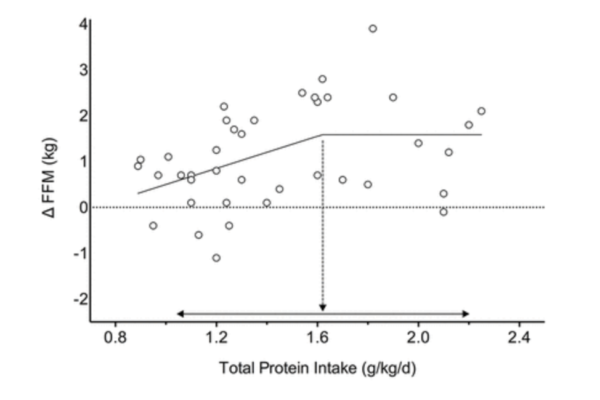
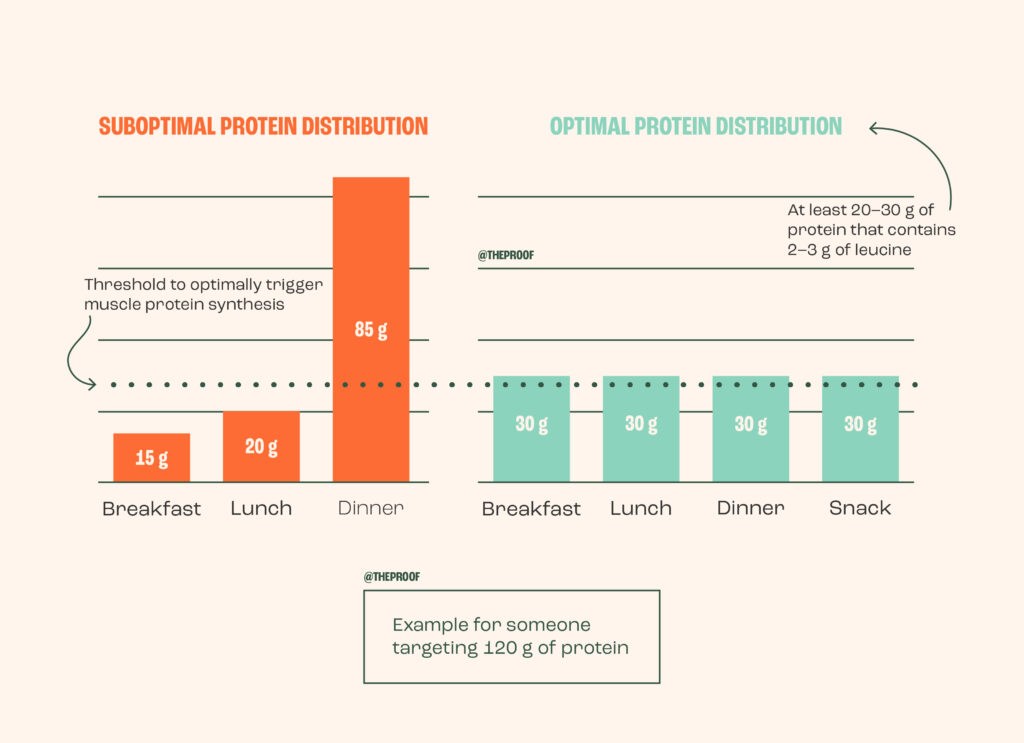
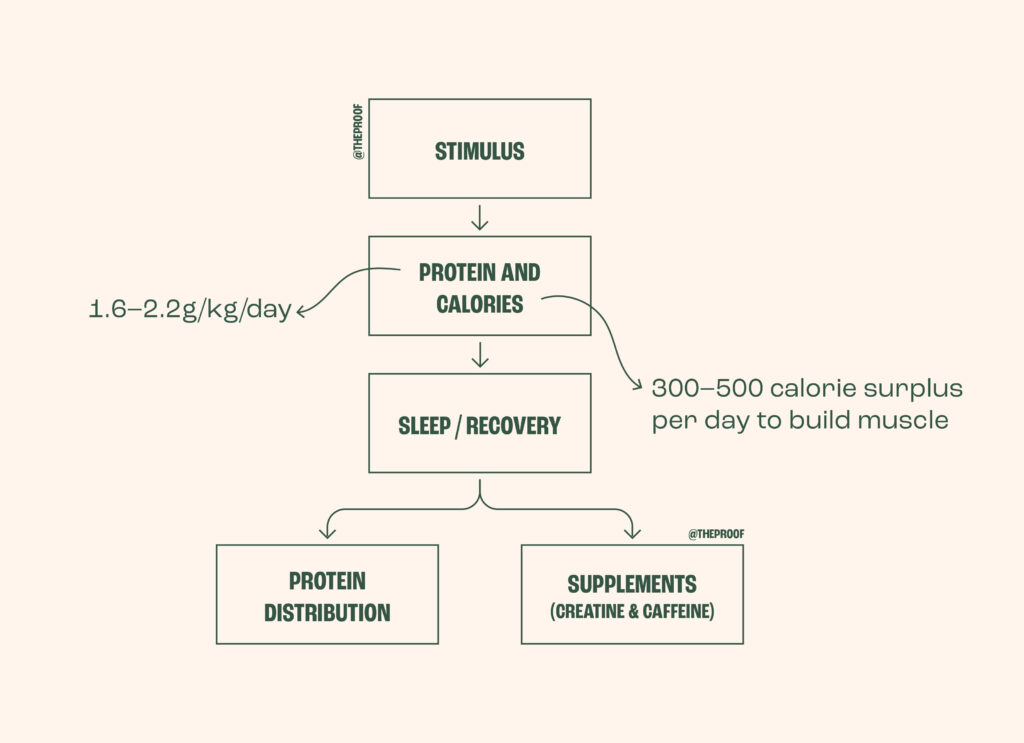
Additional Consideration
- There is some research to suggest athletes who are super lean, or in a calorie deficit, might want to target 2.4 g per kg of body weight to help preserve muscle mass.
- I’m often asked if we should be calculating protein requirements based on total body weight or fat free mass. These days I tell people to just calculate using their total body weight as it’s less complicated and getting an accurate fat free mass requires assistance from somebody experienced in taking this measurement. Even if someone is quite overweight, using their total body weight isn’t such a bad thing given the fact that protein is satiating and has a high thermic effect – these two factors combined make having good amounts of protein in one’s diet advantageous if they want to lose body fat.
Further resources:
These principles are expanded upon in my book, as well as the below podcast episodes:
- Episode #133 with Matthew Nagra, ND – Protein truths
- Episode #137 with nutrition scientist Hamilton Roschel – Animal versus plant protein for building muscle and strength. This is a great episode if you want to hear about a new randomised controlled trial that compared a completely plant-based diet with an omnivorous diet over a 12 weeks period of resistance training in young healthy male adults.

